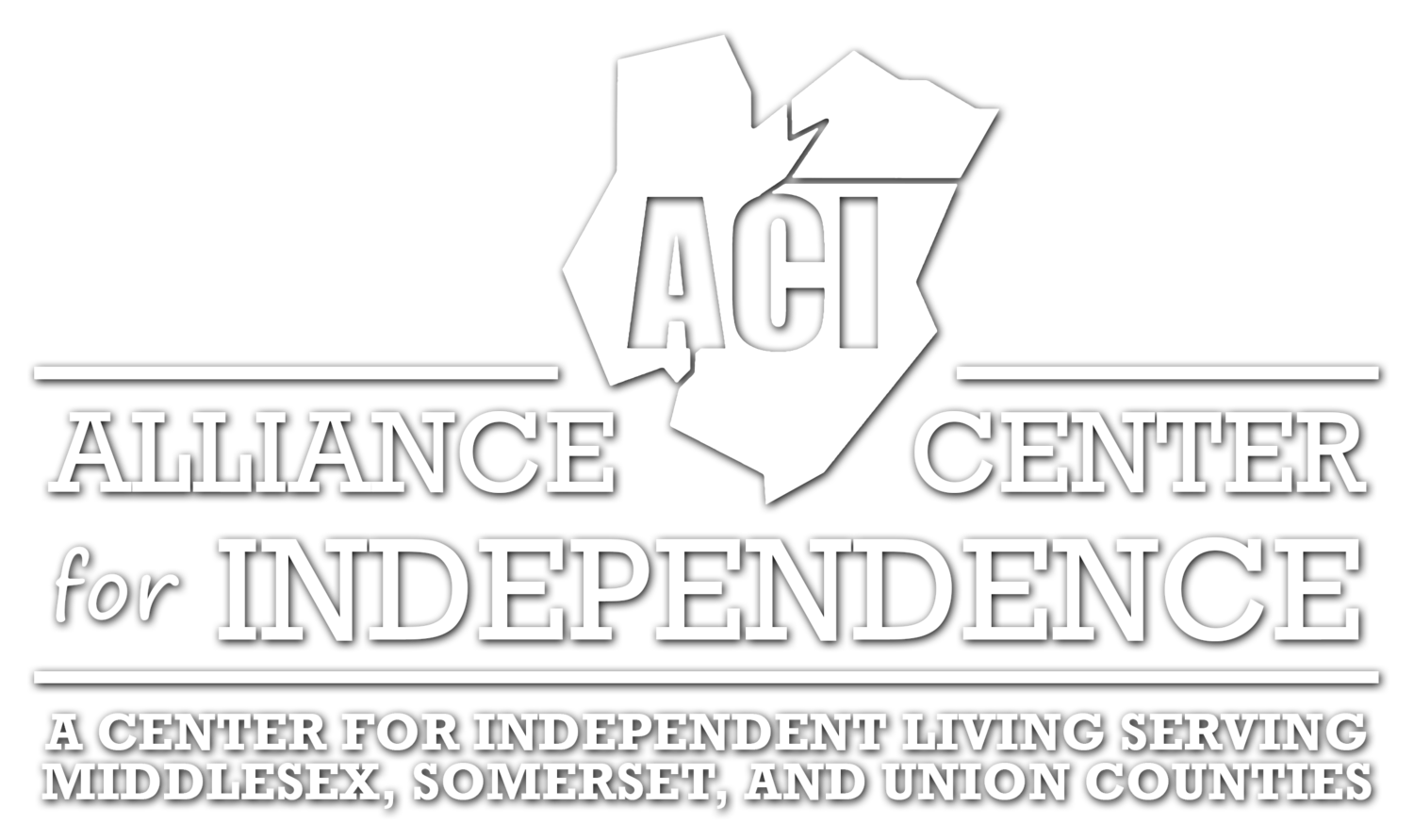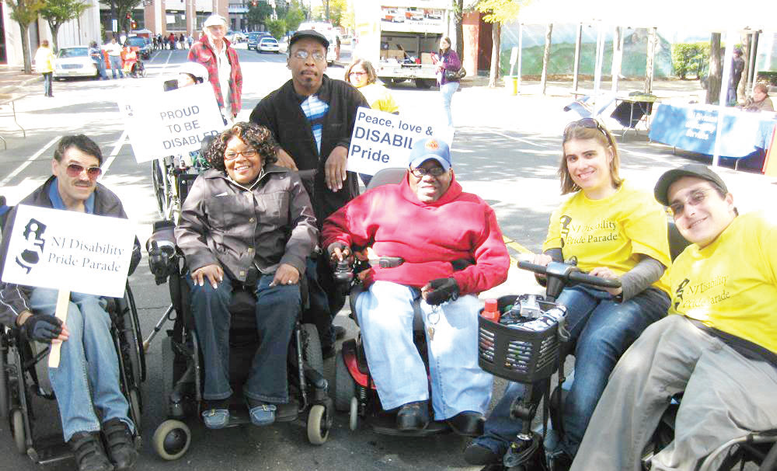Carole Tonks, Executive Director of ACI, recently sat down with Nigeria-based newspaper, New Telegraph to discuss the issues on rights, privileges and steps needed to change the way people with disabilities are treated around the world.
......
As a director in an organization that advocates for people with disability in America, why is it that people with disabilities, especially physically challenged persons, are most times looked at differently?
It is unfortunate that many people see the disability first and not the person. As more and more people with physical disabilities are out and living independently in, and contributing to the community, people’s attitudes will change.
The Alliance Center for Independence is said to recognize disability as a natural and beautiful part of human diversity. Can you explain to me the beauty in disability?
One of the beautiful things about the United States is its unique diversity of her people. We take pride in being a melting pot. Disability is a natural and beautiful part of that diversity. We recognize each other’s beauty in our uniqueness. We are more similar than we are different.
Many persons with disability get into the condition through accidents and it becomes difficult to adapt to the status of being a challenged person, how should family members, the public and the society at large help someone overcome the initial trauma of adjusting to such a life?
For this question I went to Nybil Ghanem. He works at ACI as an Information and Referral Specialist; he is also a young man with a disability.
I asked him to respond to this question: “It takes time to adjust to any disability, sometimes longer when it is acquired through an accident or unexpectedly. When this happens, it is most important to stay positive to the fact when faced with hardships in life that the person is going through. For their family and friends it is also a trying time. Being supportive, listening and remaining positive and giving the person time can be helpful. Remember, it takes time to heal both physically and emotionally.”
It is natural for most people to have empathy for people with disabilities especially when coming across them for the first time. I have come across experts that say people with disabilities do not need empathy but opportunities, is then a kind of anomaly to be sympathetic to persons with disabilities and where does one draw the line?
It is a natural human characteristic to have empathy for people. Empathy can be described as feeling with the person as opposed to sympathy. Empathy and sympathy are two very separate terms with distinctions. When you feel sympathy you are feeling sorry for or displaying pity towards someone. People with disabilities do not need sympathy or bumper stickers that ask for awareness. What is needed are acceptance and opportunities for independence.
More emphasis is paid to physically challenged persons and they have the most voice and advocacy why are persons with mental disability not getting the same level of advocacy and support as physically challenged persons?
I do not believe that statement to be true. For example, the Autism community it is very active and is a very well organized community. There are advocates all across the United States calling for change and their civil rights.
"People with disabilities can change the way society treats them." - Carole Tonks, ACI Director
Tell me the special privileges that persons with disabilities are entitled to in America that may not be accessible in most countries?
In 1990 the US passed a law called The Americans with Disabilities Act (ADA) this law prohibits discrimination and ensures equal opportunity for persons with disabilities in employment, state and local government services, public accommodation, commercial facilities and transportation. The ADA is not an entitlement, but a civil right law, as important as the civil rights and voting rights laws passed in the 1960’s.
In Nigeria, persons with disabilities are going through a hard time moving about; there are not accessible roads for them; they can’t use the public transport and cannot even enter the doors in majority of the banks to transact business as the doors are constructed without them in mind. Do you think they deserve this kind of onslaught on them by society, government and private sector?
Getting around in the physical world is something many people take for granted. It is no longer acceptable for people with disabilities not to be equal members in society, enjoying the same restaurants, stores and opportunities as everyone else. It is too often that the voices of people with disabilities are simply not heard without a fight. The voices of disabled people in developing countries can be even more suppressed.
The Convention on the Rights of People with Disabilities (CRPD) seeks to change that. The Convention has served as the major catalyst in the global movement from viewing persons with disabilities as objects of charity, medical treatment and social protection towards viewing them as full and equal members of society, with human rights. The Convention was the first human rights treaty of the third millennium. For more information, please visit the website at www.disabilitytreaty.org. Check to see if Nigeria is a signatory to the treaty.
What are the necessary steps to take to ensure that the government listens to persons with disability and pays attention to their needs?
A great deal of work is needed to address concerns ranging from affordable housing, accessibility, education, self-empowerment, health care, employment and more. Advocates need to identify people in government who support their ideas. People with disabilities need to educate themselves on the issues and how to effectively make the necessary changes. People with disabilities need to build coalitions and develop allies with organizations who have influence and also share or support the issues important to people with disabilities. In addition, people with disabilities need to show the decision makers that they can be a potentially powerful voting bloc.
What is the limit of the advocacy your organization provides for persons with disability and do you have partnerships with people outside the United States?
ACI assists people with disabilities in Middlesex, Somerset and Union counties in New Jersey. In the past we have assisted a group of students going to Tanzania in disability sensitivity and etiquette. We are open to forming partnerships with others outside of the US.
What kind of programs do you offer at ACI?
ACI provides information and referral services and develops and implements educational programs and innovative activities that promote activism, peer support, health and wellness, employment and independent living skills for people with disabilities and their allies. ACI supports the philosophy of independent living for all persons with disabilities.
Tell me what inspired the Disability Parade held annually and what objective does the parade achieve?
The idea was inspired by the Disability Pride Parade that is held annually in Chicago, IL. In a conversation with two of our young adult group members they asked “Can NJ have parade?” and so we did! As a center for independent living the philosophy is in line with our mandate. The NEW JERSEY DISABILITY PRIDE PARADE & CELEBRATION (NJDPP) is a grass-roots effort organized and hosted by ACI with the support of the statewide disability community. The purpose of the NJDPP is to bring people, organizations and businesses together to celebrate pride with the disability community and to promote the belief that disability is a natural and beautiful part of human diversity while generating national awareness for the disability community.
A Nigerian, Leroy Fagbemi, who just passed on recently partnered with ACI in some of their events, can you tell me about his involvement?
Leroy was the first artist to respond to our call for entertainers for the first NJDPP in 2011. We connected right away. He was a strong advocate for an equal society, changing people’s views of disability and was proud of who he was. Aside from music his passion was to advocate for change for people with disabilities in Nigeria.
Last year, we worked together on bringing representatives from Silverbird Television, Nigeria to New Jersey for a documentary on Leroy and the parade.
He was very proud. I spoke to Leroy not long ago; he was putting together a board for his foundation “Second Chance in Life” and asked me to join. Unfortunately, we never had the opportunity to get together to discuss his ideas. Leroy is missed by many including all of us at the Alliance Center for Independence.




